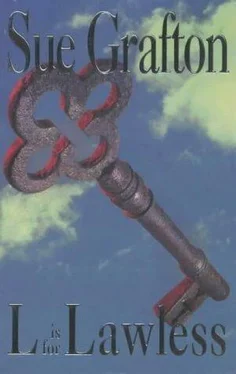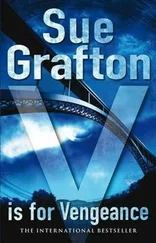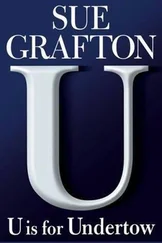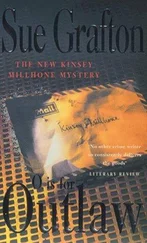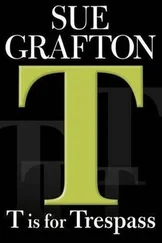
Sue Grafton
L is for Lawless
Book 12 in the Kinsey Millhone series
The author wishes to acknowledge the invaluable assistance of the following people: Steven Humphrey; Eric S. H. Ching; Louis Skiera, Veterans Services representative; B.J. Seebol, J.D.; Carter Hicks; Carl Eckhart; Ray Connors; Captain Edward A. Aasted, Lieutenant Charlene French, and Jack Cogan, Santa Barbara Police Department; Merrill Hoffman, Santa Barbara Locksmiths; Vaughan Armstrong; Kim Oser, Hyatt Dallas/Fort Worth; Sheila Burr, California Automobile Association; A. LaMott Smith; Charles de L'Arbre, Janet Van Velsor, and Cathy Peterson, Santa Barbara Travel; and John Hunt, CompuVision, who retrieved chapter 14 from the Inky Void.
I don't mean to bitch, but in the future I intend to hesitate before I do a favor for the friend of a friend. Never have I taken on such a load of grief. At the outset, it all seemed so innocent. I swear there's no way I could have guessed what was coming down. I came this close to death and, perhaps worse (for my fellow dental phobics), within a hairbreadth of having my two front teeth knocked out. Currently I'm sporting a knot on my head that's the size of my fist. And all this for a job for which I didn't even get paid!
The matter came to my attention through my landlord, Henry Pitts, whom everybody knows I've been half in love with for years. The fact that he's eighty-five (a mere fifty years my senior) has never seemed to alter the basic impact of his appeal. He's a sweetheart and he seldom asks me for anything, so how could I refuse? Especially when his request seemed so harmless on the face of it, without the faintest suggestion of the troubles to come.
It was Thursday, November twenty-first, the week before Thanksgiving, and wedding festivities were just getting under way. Henry's older brother William was to marry my friend Rosie, who runs the tacky little tavern in my neighborhood. Rosie's restaurant was traditionally closed on Thanksgiving Day, and she was feeling smug that she and William could get hitched without her losing any business. With the ceremony and reception being held at the restaurant, she'd managed to eliminate the necessity for a church. She'd lined up a judge to perform the nuptials, and she apparently considered that his services were free. Henry had encouraged her to offer the judge a modest honorarium, but she'd given him a blank look, pretending she didn't speak English that well. She's Hungarian by birth and has momentary lapses when it suits her purposes.
She and William had been engaged for the better part of a year, and it was time to get on with the big event. I've never been certain of Rosie's actual age, but she has to be close to seventy. With William pushing eighty-eight, the phrase "until death do us part" was statistically more significant for them than for most.
Before I delineate the nature of the business I took on, I suppose I should fill in a few quick personal facts. My name is Kinsey Millhone. I'm a licensed investigator, female, twice divorced, without children or any other pesky dependents. For six years I'd had an informal arrangement with California Fidelity Insurance, doing arson and wrongful death claims in exchange for office space. For almost a year now, since the termination of that agreement, I'd been leasing an office from Kingman and Ives, a firm of attorneys here in Santa Teresa. Because of the wedding I was taking a week off, looking forward to rest and recreation when I wasn't helping Henry with wedding preparations. Henry, long retired from his work as a commercial baker, was making the wedding cake and would also be catering the reception.
There were eight of us in the wedding party. Rosie's sister, Klotilde, who was wheelchair bound, would be serving as the maid of honor. Henry was to be the best man, with his older brothers, Lewis and Charlie, serving as the ushers. The four of them – Henry, William, Lewis, and Charlie (also known collectively as "the boys" or "the kids") – ranged in age from Henry's eighty-five to Charlie's ninety-three. Their only sister, Nell, still vigorous at ninety-five, was one of two bridesmaids, the other being me. For the ceremony Rosie had elected to wear an off-white organza muumuu with a crown of baby's breath encircling her strangely dyed red hair. She'd found a bolt of lavish floral polished cotton on sale… pink and mauve cabbage roses on a background of bright green. The fabric had been shipped off to Flint, Michigan, where Nell had "run up" matching muumuus for the three of us in attendance. I couldn't wait to try mine on. I was certain that, once assembled, the three of us would resemble nothing so much as a set of ambulatory bedroom drapes. At thirty-five, I'd actually hoped to serve as the oldest living flower girl on record, but Rosie had decided to dispense with the role. This was going to be the wedding of the decade, one I wouldn't miss for all the money in the world. Which brings us back to the "precipitating events," as we refer to them in the crime trade.
I ran into Henry at nine that Thursday morning as I was leaving my apartment. I live in a converted single-car garage that's attached to Henry's house by means of an enclosed breezeway. I was heading to the supermarket, where I intended to stock up on junk food for the days ahead. When I opened my door, Henry was standing on my front step with a piece of scratch paper and a tape dispenser. Instead of his usual shorts, T-shirt, and flip-flops, he was wearing long pants and a blue dress shirt with the sleeves rolled up.
I said, "Well, don't you look terrific." His hair is stark white and he wears it brushed softly to one side. Today it was slicked down with water, and I could still smell the warm citrus of his aftershave. His blue eyes seem ablaze in his lean, tanned face. He's tall and slender, good-natured, smart, his manner a perfect blend of courtliness and nonchalance. If he wasn't old enough to be my granddaddy, I'd snap him up in a trice.
Henry smiled when he saw me. "There you are. Perfect. I was just leaving you a note. I didn't think you were home or I'd have knocked on the door instead. I'm on my way to the airport to pick up Nell and the boys, but I have a favor to ask. Do you have a minute?"
"Of course. I was on my way to the market, but that can wait," I said. "What's up?"
"Do you remember old Mr. Lee? They called him Johnny here in the neighborhood. He's the gentleman who used to live around the corner on Bay. Little white stucco house with the overgrown yard. To be accurate, Johnny lived in the garage apartment. His grandson, Bucky, and his wife have been living in the house."
The bungalow in question, which I passed in the course of my daily jog, was a run-down residence that looked as if it was buried in a field of wild grass. These were not classy folk, unless a car up on blocks is your notion of a yard ornament. Neighbors had complained for years, for all the good it did. "I know the house, but the name doesn't mean much."
"You've probably seen 'em up at Rosie's. Bucky seems to be a nice kid, though his wife is odd. Her name is Babe. She's short and plump, doesn't make a lot of eye contact. Johnny always looked like he was homeless, but he did all right."
I was beginning to remember the trio he described: old guy in a shabby jacket, the couple playing grab-ass, looking too young for marriage. I cupped a hand to my ear. "You've been using past tense. Is the old man dead?"
"I'm afraid so. Poor fellow had a heart attack and died four or five months back. I think it was sometime in July. Not that there was anything odd about it," Henry hastened to add. "He was only in his seventies, but his health had never been that good. At any rate, I ran into Bucky a little while ago and he has a problem he was asking me about. It's not urgent. It's just irksome and I thought maybe you could help."
Читать дальше
